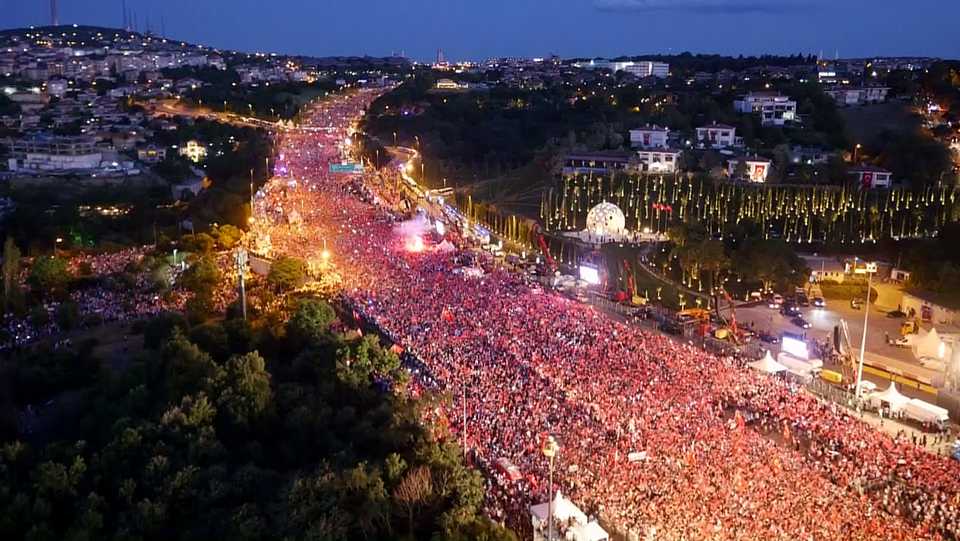
Two years ago, on July 15, a rogue faction in the Turkish military launched a coordinated operation to overturn the government.
In several major cities, including the capital Ankara and the country’s biggest city Istanbul, the putschists attempted to seize key installations.
As news of the attempted coup spread, citizens left their homes and offices to stop the soldiers armed with guns and tanks. The night’s events saw at least 250 killed and nearly 2,000 others were wounded.
“We will have to educate our children in a special way so that we don’t experience another July 15,” President Recep Tayyip Erdogan said on the second anniversary of the July 2016 coup attempt.
TRT World’s Melinda Nucifora has more.
Is Fetullah Gulen ever coming back to Turkey?
Two years after the defeated coup, there has been little progress on Ankara’s request for Fetullah Gulen to be extradited from the United States.
Gulen is the leader of the Fetullah Terrorist Organisation (FETO), the group behind the failed coup attempt.
As TRT World’s Ediz Tiyansan reports, Ankara’s desire to have Gulen extradited could impact the future of US-Turkey relations.
Refusal to back down
It was a horrific night for the country’s people, as chaos reigned during the hours of fighting, claims and counter-claims.
Following are the stories of some of the millions of Turkish women and men who responded to President Erdogan’s Facetime call to take back the streets from the criminals who had risen up against the democratically elected government and state institutions.
Imam Hasan Huseyin Alkir heard the news over the phone from a friend: “A coup is taking place, the special forces getting attacked.”
The group behind the coup
The FETO and its US-based leader Fetullah Gulen orchestrated the attempted coup.
Four days after on July 20, 2016, Turkey declared a state of emergency. It said doing so would allow for precise action against FETO as well as other terrorist organisations.
Over the next two years, more than 125,000 people were suspended from their government positions, including 13,000 from the Turkish military.
A Turkish court on Thursday this week sentenced 72 soldiers to life in prison for their role in the coup attempt on July 12, 2018. They were part of a larger group who blocked the July 15 Martyrs Bridge (formerly known as the Bosphorous Bridge) in Istanbul where 34 were killed that night. Some relatives of the victims have expressed unhappiness with the verdict.
TRT World’s Melinda Nucifora has more.










Discussion about this post